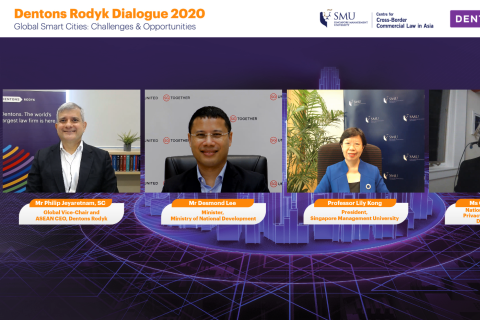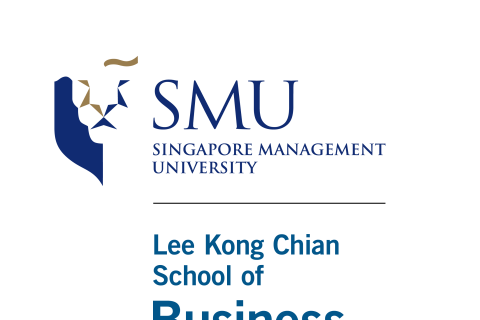
By Alvin Lee
SMU Office of Research & Tech Transfer – Since around March 2020, millions of people worldwide have been forced to work from home in the aftermath of COVID-19 lockdowns. While some have celebrated escaping long daily commutes, others lament the loss of face-to-face contact with colleagues and business partners.
Some companies, meanwhile, have implemented tracking systems to ascertain their employees’ presence at the laptop instead of them gallivanting during office hours. What employers are allowed to track, and what kinds of information they can keep, is subject to laws in different jurisdictions. But how does this tracking affect employees’ relationship with their employers?
“You might antagonise your employees and you might deter people from joining your organisation,” observes Laurel Teo, a PhD student in Organisational Behaviour & Human Resources (OBHR) at SMU Lee Kong Chian School of Business (LKCSB). “If a potential employee has two choices between you and another company, and if your company is deemed to be interfering or being invasive of privacy, then they might prefer to join the other company.”
Teo is the co-author of “Privacy at Work: A Review and a Research Agenda for a Contested Terrain" with SMU Associate Professor of OBHR Devasheesh Bhave and Professor Reeshad Dalal at George Mason University. In it, the authors wrote thus:
“Employees expect to be in control of the personal information and access they provide to the organisation. Employers, however, expect extensive information regarding their employees as well as extensive access to employees’ presence. The chasm between these two often competing expectations has been magnified by regulatory and technological trends.”
Tallying your own privacy calculus
The regulatory trends are most visible and stringent in Europe with GDPR (General Data Protection Regulation), and perhaps less so in Singapore with PDPA (Personal Data Protection Act). The technological trends refer to the enormous amounts of data individuals generate, where “everything is digitalised [from] your name and your age, even your health records and your daily movement can be translated into digital information, and that has severe privacy implications”.
Within the employment context, Teo refers to the Privacy Calculus Model to make sense of the ‘chasm’ between employees’ and employers’ expectations about personal information.
“In economics they're always talking about trade-offs [where] you weigh the benefits and costs and decide, ‘Should I do this? Do the benefits outweigh the costs?’” Teo explains. “When you talk about the privacy calculus, we’re arguing that people do the same thing when it comes to privacy.
“Consumer marketing research has studied how online campaigns ask respondents for email addresses or to provide personal information and create accounts in exchange for, say, a 10 percent discount or a $5 voucher, and often, people would be happy to do that.”
Within the workplace, employers do the same. If an individual chooses to work for an organisation after the recruitment process, he or she is deemed to have implicitly accepted the employer’s demand for personal information, assessing the rewards of working for the company to be greater than the cost of giving up the information.
However, Teo warns that some employers might expect continued access to other spheres of your private life beyond the recruitment phase.
“Some employers might want to track your email or they might want to monitor your Facebook,” she notes. “Some may want to do electronic surveillance as well, which is becoming very relevant in the COVID context.
“If you look at news reports, the sales of employee surveillance tools have shot up during this work-from-home period. There are all kinds of way to track an employee. You can track what they call keyboard movements to see if you have been typing on the keyboard or not for a certain amount of time.”
Physical privacy
What kinds of information employers are entitled to is primarily a legal question, Teo explains. The state, being the third stakeholder of privacy in the workplace, is in charge of “safeguarding freedom and ensuring the rule of law”, as stated in the privacy research paper. She mentions literature that explains different people making different cost-benefit analysis based on factors ranging from personality to culture, such as in Europe where people are more concerned about information privacy with respect to corporations, whereas Americans are more concerned about information privacy with respect to the government.
And then there is environmental privacy, which consists of four factors: visual; acoustic/audio; personal space; and olfactory/smell. Given the proliferation of open offices, what does research say about the lack of privacy in the workplace?
“Research has consistently shown that people are less satisfied with workspaces that provide less privacy. Employees report lower overall job satisfaction, greater emotional exhaustion and greater fatigue. Furthermore, having less privacy in the work environment often results in distractions and is associated with lower job performance,” Teo says.
“Proponents of the open space concept argue that apart from being able to monitor your employees and see what they're up to, it encourages interactions among employees because they talk to each other more. Research has mixed findings about that: some say yes, some say no. You may be able to see everybody but you can't have a private conversation. So even if I see you, I can't say anything that's really meaningful because everyone can hear me.”
She emphasises: “If it's a group thing and everybody is there, it's okay. But if it's a one-on-one conversation with someone, then you definitely want privacy. In fact, there are studies that show that switching from an enclosed to an open-plan office actually led to a significant decline in face-to-face interaction among employees. People were simply moving their conversations online – using instant messaging for instance – to have private chats.”
Noting that employers and employees are aligned in wanting better performance, but less so when it comes to monitoring, Teo notes that the deluge of data made available by technology such as mobile phones and GPS means employers should be “completely upfront about what, when and how they're collecting” to facilitate employees’ assessment of their privacy calculus.
Back to Research@SMU Nov 2020 Issue
See More News
Want to see more of SMU Research?
Sign up for Research@SMU e-newslettter to know more about our research and research-related events!
If you would like to remove yourself from all our mailing list, please visit https://eservices.smu.edu.sg/internet/DNC/Default.aspx

